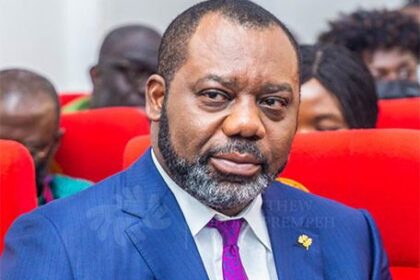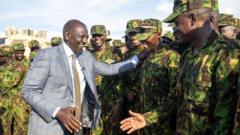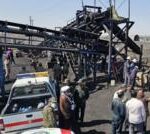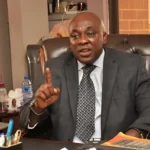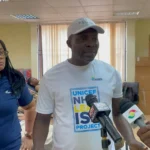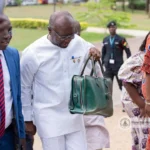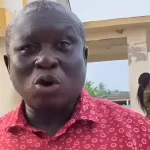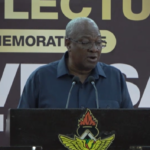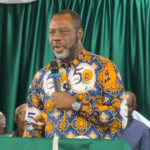Kenya has pledged to send 600 more police officers to Haiti in the coming weeks to help fight gangs controlling much of the capital, Port-au-Prince, and nearby areas.
This would bring the Kenyan contingent, deployed incrementally since June to help the Caribbean nation’s beleaguered police force, up to 1,000.
During a visit to the country, Kenya’s President William Ruto also said he supported turning the current Kenya-led security mission into a full United Nations peacekeeping operation.
A handful of other countries have together pledged at least 1,900 more troops.
Violence in Haiti is still rife and a UN human rights expert has warned that gangs are targeting new areas, causing further displacement.
The UN Security Council is due to meet by the end of the month to decide whether to renew Kenya’s current mandate for another 12 months, paving the way for a full UN mission in 2025.
This would lead to increased funding and resources for the operation, which has been hampered by a lack of equipment.
Addressing the Kenyan police officers at their base in Port-au-Prince, President Ruto commended the force for their successes over the last few months.
“There are many people who thought Haiti was mission impossible, but today they have changed their minds because of the progress you have made.”
He said they would succeed against the gangs and he promised to try to get them better equipment.
The nearly 400 Kenyan officers on the ground were going out on patrol “working hand-in-hand with Haitian forces to protect the people and restore security”, Ruto said.
“Our next batch, an additional 600, is undergoing redeployment training. We will be mission-ready in a few weeks’ time and look forward to the requisite support to enable their deployment,” he added.
But there has been some criticism in Haiti at the lack of a decisive move against the gangs.
A UN human rights expert who has just been there said the mission was inadequately equipped and needed helicopters, as well as night vision goggles and drones.
“The Multinational Security Support Mission (MSS), authorised by the UN Security Council in October 2023, has so far deployed less than a quarter of its planned contingent,” William O’Neil said on Friday, external.
Despite an international embargo, arms and ammunition continued to be smuggled into the country. allowing the gangs to extend their control to new territories, he said.
The UN expert had visited the south-east of the country, where he said the police lacked the logistical and technical capacity to counter the gangs.
He quoted a policeman in Jérémie as saying: “The situation borders on the impossible. We have to learn to walk on water.”
Sexual violence had drastically increased and more than 700,000 people were now displaced, Mr O’Neil said.
“This enduring agony must stop. It is a race against time.”
He said the solutions already existed, but efforts had to be “redoubled immediately”.
“It is crucial to stifle the gangs by giving the MSS Mission the means to be effective in supporting the operations of the Haitian National Police, as well as to implement the other measures provided for by the United Nations Security Council, including the sanctions regime and the targeted arms embargo.”
Go to BBCAfrica.com, external for more news from the African continent.
Follow us on Twitter @BBCAfrica, external, on Facebook at BBC Africa, external or on Instagram at bbcafrica, external


